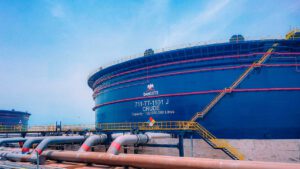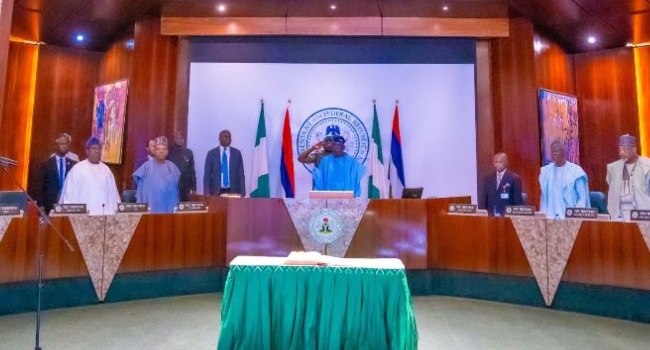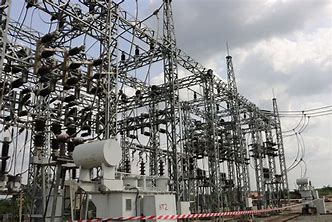
By Amah
The Federal Government’s naira-for-crude policy, aimed at enhancing local refining capacity, appears to have stalled, leading domestic refiners to resort to importing oil, sources informed Daily Sun at the weekend.
The Minister of Finance and Coordinating Minister of the Economy, Wale Edun, confirmed the commencement of the new policy, which came into effect on October 1, 2024, in accordance with a directive from the Federal Executive Council (FEC).
Meanwhile, the Dangote Petroleum Refinery has announced a reduction in its ex-depot price of premium motor spirit (PMS), also known as petrol, to N970 per litre for oil marketers.
According to a statement yesterday, this is a cut from the refinery’s N990 ex-depot price announced earlier this month.
The slash would save marketers about N20 on each litre of petrol bought from the Lekki-based plant.
In a telephone interview with Daily Sun yesterday, Mr. Eche Idoko, the Publicity Secretary of the Crude Oil Refiners Association of Nigeria (CORAN), stated that the policy has failed. He explained that the policy’s shortcomings have compelled some members of the association to begin discussions with foreign counterparts for the importation of crude oil.
The CORAN scribe said at the implementation stage of the policy, the government promised to start supply with Dangote and thereafter to its members. But over one month since the policy started, they were yet to receive a single drop of crude oil from the government to run their refineries
Idoko expressed disappointment, revealing that the association, which had been at the forefront of discussions during the conceptualisation of the naira-for-crude policy, has now been sidelined, no longer receiving invitations to meetings.
He further noted that multilateral agencies, including the World Bank, IMF and Afreximbank, have now taken center stage, serving as lead advisors to the federal government on the policy’s direction.
“At the moment, it now appears that we are being pitched against the regulators, which was not the target. Our ultimate goal is to make Nigeria a net refiner of petroleum products but we seem to be far from that aspiration as we speak.
Some of our members have had to shut down operations for up to three months due to the lack of crude oil for production. These are companies that have invested millions of dollars, yet they remain idle because they cannot access the crude they need.
“This raises serious questions, particularly for the Federal Government, about why it has deviated from the recommendations outlined in the document supporting the naira-for-crude policy. Shockingly, as a group, we don’t even have a copy of this document and are unaware of its full details,” he lamented.
He further highlighted that domestic refineries, with a combined installed capacity of 22,000 barrels per day, are currently operating far below capacity due to the unavailability of crude, which has crippled their operations.
In a related development, Edwin Devakumar, Vice President of Dangote Industries Limited, told Reuters over the weekend that the Federal Government’s naira-for-crude initiative is failing. He revealed that the Dangote Refinery has struggled to secure sufficient domestic crude supplies from the Nigerian National Petroleum Company (NNPC) Limited.
“We require 650,000 barrels per day, and while NNPC Limited agreed to supply a minimum of 385,000 barrels per day, they are not even meeting that commitment,” Devakumar said, describing the deliveries under the naira-for-crude scheme as “peanuts.”
He noted that although the Dangote Refinery recently received four cargoes of crude oil from NNPC through the naira-for-crude agreement, it still relies on imports from the United States to meet its production needs.





